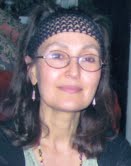
THINKING IN A NEW WAY—Overcoming Habits (Part 6 of 6): Putting it All Together
Selma Gokcen
“You get away from all your old preconceived ideas because you are getting away from your old habits.” —F.M. Alexander
We come to the end of this six part series, having touched on various aspects of cello technique, bringing the principles of the Alexander Technique to the most basic work of balancing the instrument, then using the bow and the left hand.
Once this basic work is accomplished, the next stage is to take a new piece of music and to begin to work with it for a few minutes each day. Instead of aiming for the goal—which is to get the piece learned and which can produce all sorts of accompanying reactions—we can take away the goal entirely, and use those few minutes while we work on the piece to pay attention to ourselves. Our automatic, subconscious patterns of learning usually get us through a new piece of music quickly. Here they become useful material for self-study. ‘What happens when…’ is a good question to keep asking. Again, coming back to quiet, gathering one’s inner composure, learning to bring this inner stillness into movement is the challenge we all face as musicians. Can we hear a phrase of music from a place of silence? Can we put the freedom of our neck first, can we leave our back and arms alone instead of creating all that tension as we get ready to play? Alexander faced and overcame similar habits in giving his dramatic recitations as an actor. We can do so too if we are prepared to give up our ‘right and familiar’ ways of working with the music.
In summary, the real and lasting value of the Alexander Technique is psycho-physical, meaning the unity of mind and body, of thought and action. Our habits are rooted deeply in the nervous system and as Alexander discovered, he did not have to do anything for a habit to get started. He just had to think about doing something. One small thought is enough to get the whole of us prepared to act.
For this reason, the re-training of musicians along this path takes time; the change has to come from within, not from without. No one can teach us the right thing to do. The conceptions, the thought patterns are uniquely ours, formed from our previous training, from what we have seen others do, and consequently what we think is the right way to go about our work as musicians. Preconceived ideas condition our sound, our musical expression, our feeling of what is right and what is wrong. Learning to see these ideas for what they are—how the old beliefs produce the unnecessary tension in the arm or the pressure in the sound or a hundred other unwanted things—that’s the level on which we work to bring about lasting change.
The questions that concern musicians are primarily psycho-physical: how do we conceive of our sound, why do we use so much more effort than necessary to speak a musical phrase, how is it that intensity of expression has become confused with excessive muscular tension? Is our attention and our breath flowing or holding, and what makes the difference between the two? Each of our actions is an expression of a particular thought pattern. By exploring our habit, the shell of the nut cracks, and the two halves of the whole are exposed.
We usually have to give up ideas which are ‘expensive’, as I refer to them—we have paid a lot of money to acquire them from expensive courses, schools and teachers. But once the old habits of thought (and action) are unravelled , and the new pathways become established in the nervous system, the messages we have learned to give move smoothly and quickly; then we might have the very first experience ever of ease and the physical pleasure of playing.
The Alexander Technique offers us a framework for self-study, a principle by means of which we can evaluate whether our learning is beneficial or harmful. What is that principle? Our use of ourselves affects our functioning. So if we are learning a new work, or travelling long hours, or playing on a cramped stage, we have the fundamental knowledge of our psycho-physical unity, we have the ability in one moment to become inwardly still, allowing for freedom in our head-neck-back relationship, so that the natural can guide us in our movements. The Alexander principle is the constant, operating through changing conditions, whereas positions are fixed and often cannot help us in changing conditions. Yes, there are times when we cannot stop ourselves and we push and strain, but even so, the principle allows us to see ourselves in those moments and to come back into balance.
The work involved in refining sensation and awareness over a lifetime has infinite rewards. Alexander used to say, “The whole body is informed with thought.” This quality of energy can then be put at the service of the music and the entire musical experience, whether with another musician, a student or an audience of thousands.
Subjects: Playing Healthy
Tags: aiming for a goal, Alexander Technique, automatic, balancing the instrument, bow, breath flowing, cello, cello technique, cellobello, conceptions, evaluate, Experience, exploring our habits, framework for self-study, freedom, fundamental knowledge, Gokcen, inner composer, lasting value of Alexander Technique, left hand, movement, muscular tension, music, musical expression, nervous system, phrasing, physical pleasure of playing, place of silence, Preconceived ideas, pressure in the sound, psycho-physical, re-training of musicians, reactions, refining sensation and awareness, self-study, Selma, Six Part Series, subconscious patterns of learning, tension, thinking, Thinking in a new way, working with music
